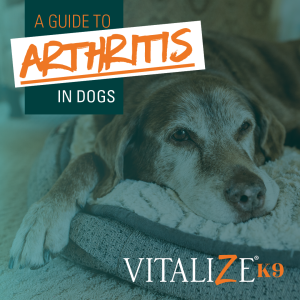
Acid Reflux in Dogs
Many of us have experienced heartburn. Perhaps after overindulging at a family holiday potluck or eating way too many of Aunt Janet’s famous spicy meatballs. You are experiencing acid reflux, and, often, your next step might be reaching for the antacids.
Fortunately, we can identify and treat our own discomfort. However, our four-legged canine friends cannot. Acid reflux in dogs or gastroesophageal reflux disease (GERD) is a common occurrence. Acid reflux is caused when fluid comes up from the stomach and flows into the esophagus, the tube that leads to the mouth.
Normally, these fluids would not be able to reach the esophagus because of a sphincter, or opening, at the base of the esophagus. However, in dogs with acid reflux, the sphincter muscle relaxes too much and allows the intestinal fluids to pass through.
GERD is a more serious form of acid reflux. When a dog experiences GERD, the backflow of stomach acid occurs chronically and causes damage to the body over time.
Causes of Acid Reflux in Dogs
There are several reasons a dog could experience acid reflux.
Allergen Irritation
If your dog has allergies related to something in its diet, that could cause them to have acid reflux. Common allergens and other irritants may include gluten, soy, GMOs, additives, colorings and preservatives.
Always read the labels to know your pet food ingredients. Pay attention if your dog has continued serious reactions to the same food, and talk to your veterinarian about changing its diet if you notice any potential food allergies.
Anesthesia
Anesthesia causes acid reflux in dogs because the anesthetic drugs relax the sphincter, which prevents intestinal fluids from coming back up. This can be worsened even more if a dog’s head was lower than its stomach during the procedure.
Anesthetized dogs are unable to swallow normally and the epiglottis, a flap that protects the entrance of the windpipe, is relaxed which may cause vomiting in their lungs. Therefore, dogs should fast before any procedure involving anesthesia.
Always consult with your veterinarian if you have concerns pre- or post-procedure about your dog developing acid reflux or having issues with anesthesia.
Brachycephalic Dog Breeds
Brachycephalic dog breeds are those that are identified by their shortened snouts or faces that appear flat and have narrow nostrils and smaller airways.
These breeds, such as pugs, English bulldogs and Boston terriers, are more prone to vomiting and regurgitation due to their shorter esophagus and their increased risk of Hiatal hernias. Both of these factors make it easier for acid reflux to occur in these squished nose and short-headed dog breeds.
Chronic Vomiting
Chronic vomiting can result in further acid reflux as the dog’s system is weaker and less able to prevent stomach fluids from entering the esophagus.
Persistent vomiting is caused by previous attacks of acid reflux, an unrelated disease or medication. It can cause damage to a dog’s throat and stomach leading to acid reflux.
Hiatal hernias
Hiatal hernias, also known as diaphragmatic hernias, can dramatically increase acid reflux in dogs. Diaphragmatic hernias are typically congenital (a dog is born with them) or a result of trauma, like being in a car accident.
With a hiatal hernia, the diaphragm is opened, and the stomach, intestines or liver may enter part of the chest cavity. As a result of this strange positioning and added pressure, your dog could develop acid reflux.
Overproduction of Stomach Acids
Stress, hernias, bacterial infections, spicy or oily foods can cause the overproduction of stomach acids. The overproduction of stomach acids can lead to a variety of stomach and gastrointestinal health problems.
Underproduction of Stomach Acids
Likewise, the underproduction of stomach acids, otherwise known as hypochlorhydria, can cause the stomach to be upset, resulting in acid reflux in dogs. This may be an overreaction to acid-reducing drugs.
One or more of these causes can cause stomach upset and acid reflux in your dog. Although you know your best fur friend better than anyone, let’s look at some symptoms of acid reflux in dogs.
Symptoms of Acid Reflux
How can you tell if your dog has acid reflux? It might not be easy to tell if your dog is suffering from acid reflux since they usually appear fine until they vomit. However, here are a few other signs to look for that might indicate acid reflux:
- Empty or painful swallowing
- Appearing to lick or bite the air
- Loss of appetite or weight loss
- Vomiting bile
- Eating grass or dirt
- General discomfort and lethargy
In severe cases, your dog may even vomit blood, a sign of esophageal ulceration.
More About GERD
Short-term acid reflux in dogs is caused much like it is in humans – eating foods that are too rich or fatty. However, GERD is a long-term, more chronic condition. If your dog is experiencing symptoms of GERD, there are a few steps you may want to take to try to reduce them. One of the most convenient ways may be a slight change to the diet.
The Importance of Treating GERD
Now you may be thinking, “ok, so my dog is vomiting. That’s not great, of course, but what is the big deal?” Well, the health risks of not treating GERD are a very big deal.
If left untreated, GERD can lead to several health issues for dogs:
Esophagitis
The constant exposure of the esophagus to stomach acid can lead to inflammation, known as esophagitis. This can cause discomfort and pain for the dog.
Ulcers
Severe or chronic cases of GERD can result in the formation of ulcers in the esophagus. Ulcers can be painful and may lead to further complications.
Stricture Formation
Over time, chronic inflammation can cause the esophagus to narrow or form strictures. This makes it difficult for food to pass through, leading to problems with swallowing.
Respiratory Issues
Aspiration of stomach contents into the lungs can occur in advanced cases of GERD. This may lead to respiratory issues, including coughing, wheezing or pneumonia.
Weight Loss
Persistent discomfort and pain during eating may cause dogs to eat less, leading to weight loss. But we’re not talking about healthy weight fluctuation. Not eating as a result of GERD can cause critical nutritional deficiencies that meaningfully threaten the well-being of your furry friend.
Behavioral Changes
Chronic discomfort can lead to changes in behavior, including decreased activity, reluctance to eat or signs of pain.
Treating Acid Reflux & GERD
Thankfully, though, there’s a lot we can do to prevent acid reflux in dogs. That way, they can continue to be their fun lovable selves. Here’s what you should know about treatment options.
Dogs with acid reflux and GERD often do well on a low-fat, low-protein diet. Protein stimulates the secretion of gastric acid, while fat decreases the strength of the muscle between the stomach and esophagus.
Feeding smaller, frequent meals can also help prevent an excess of acid from entering the esophagus and causing discomfort. Smaller, more frequent meals are beneficial when a dog is vomiting bile as a result of a very empty stomach. Large meals can worsen reflux because an overly full stomach places excessive pressure on the diaphragm, causing acid to travel upward.
An evening feeding can be helpful in bridging the gap between meals. That said, this meal should only be a small one because lying down can relax the esophageal sphincter.
Feed soft foods or food that has been soaked in water before feeding. The esophagus may be sore and inflamed as a result of acid damage. Soft food also assists the initial workload of the digestive enzymes, and that can be beneficial for any dog with compromised digestion.
Regardless of your dog’s diet, you can also benefit from being proactive and supplementing a high-quality gastric health product. Vitalize® offers a great option with Vitalize® Alimend® K9.
Vitalize Offers Gastric Support
Vitalize Alimend K9 is a liquid product for dogs designed to support gastric health and GI tissue and which may relieve occasional gastric issues.
It contains three key ingredients:
- MHB3® Hyaluronan, a patented high molecular weight hyaluronic acid that coats the stomach and supports GI tissue integrity.
- AO-Biotics® Amaferm®, a prebiotic research-proven to enhance digestibility.
- Mushroom-derived beta-glucans that support the gut and immune system.
Vitalize Alimend K9 is easy to use. Give your dog ½ teaspoon (2.5 mL) twice daily. You can give your Alimend during or after mealtimes. It can be applied as a food topper.
Being proactive with a healthy diet and a gastric health regimen are just a few ways to help make sure your dog doesn’t suffer from occasional gastric issues. If you think your dog might have acid reflux, GERD or another chronic digestive issue, always make sure to take it to a licensed veterinarian for a thorough exam.
Don’t Just Take Our Word for It
Vitalize customer Sally Lahmon takes great care of her puppy Guster and credits the Alimend for helping relieve his gastrointestinal issues.
“Our golden retriever puppy, Guster, has struggled with some digestive issues that caused him go on a special diet. While this helped, we found that giving him Alimend K9 by Vitalize effectively calmed his tummy during flair-ups. The easy-to-use applicator and bottle top construction made giving him his dose a breeze. The best part is that Gus loves it!”
Learn More About Vitalize
Not only does Vitalize make Alimend K9, but they also make other supplements to help with dog digestive and joint health. We optimize our products to help prevent acid reflux in dogs.
Learn more about the research-proven ingredients behind Vitalize.
Want to get Vitalize for your dog?
You can buy any of the Vitalize products, including Vitalize Alimend K9, online. If you prefer to shop in person, find a store near you.
Want more information about Vitalize and how to give your dog #agoodgutfeeling? Sign up for our electronic newsletter.

